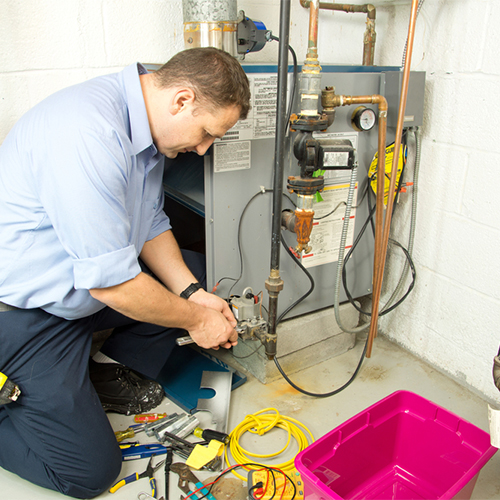 Ignoring unusual furnace noises may seem insignificant, but it can lead to significant issues later on. Furnaces are complicated systems that require regular maintenance to operate efficiently and safely. Strange noises often indicate underlying problems that, if neglected, can cause damage to the furnace and pose safety risks to your household.
Ignoring unusual furnace noises may seem insignificant, but it can lead to significant issues later on. Furnaces are complicated systems that require regular maintenance to operate efficiently and safely. Strange noises often indicate underlying problems that, if neglected, can cause damage to the furnace and pose safety risks to your household.
Some Common Furnace Noises & Reasons Behind Them
Common furnace noises include banging, rattling, whistling, screeching, and loud humming. These may result from dirty burners, worn components, faulty belts, or delayed ignition. It’s crucial to address any unfamiliar noises promptly by contacting a professional HVAC technician. Early intervention not only prevents further damage but also potentially saves money on expensive repairs.
Understanding these noises is essential for homeowners. Squealing noises may suggest issues with the blower motor or belt, while rattling could arise from loose ductwork or components. Humming noises might indicate problems with the blower motor or capacitor. Professional inspection and repairs ensure your furnace operates smoothly, enhancing both efficiency and safety.
The Dangers of Ignoring Strange Furnace Noises
- Potential for Equipment Damage
Strange furnace noises often signal underlying issues within the heating system. For instance, a squealing noise may indicate a loose or damaged belt. If not addressed promptly, this could lead to the belt breaking and potentially causing more extensive damage that requires costly repairs. - Risk of Health Hazards
Neglecting furnace noises can pose serious health risks. A rattling sound might indicate a crack in the furnace’s heat exchanger, which could leak carbon monoxide (CO) into your home. CO is a colorless, odorless gas that can be deadly in high concentrations, causing symptoms like headaches, nausea, and even death. - Increased Energy Costs
Furthermore, ignoring furnace noises can lead to higher energy bills. For instance, a whistling noise might suggest a clogged air filter, causing the furnace to work harder and less efficiently. This inefficiency results in increased energy consumption and subsequent higher utility costs.
In conclusion, addressing strange furnace noises promptly is crucial to prevent potential equipment damage, health hazards from CO leaks, and unnecessary increases in energy expenses. By taking action early, homeowners can ensure their furnace operates safely, efficiently, and cost-effectively. Regular maintenance and timely repairs by our professional HVAC technicians are essential to maintaining a healthy and functional heating system.

